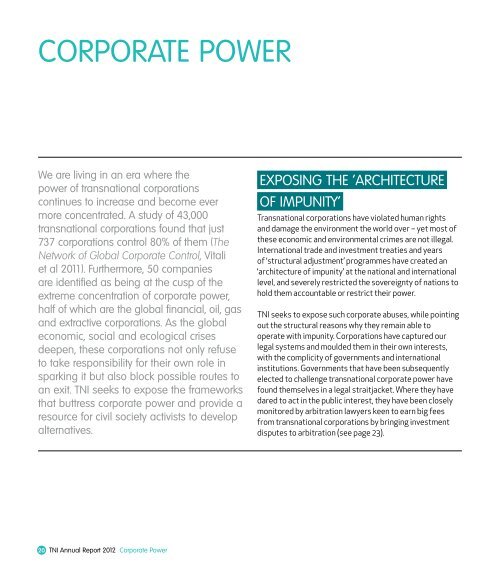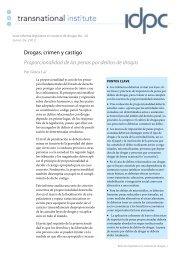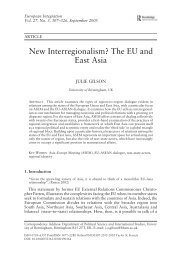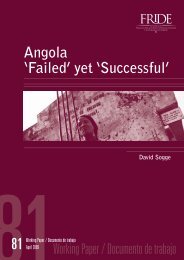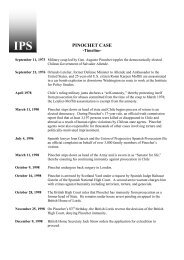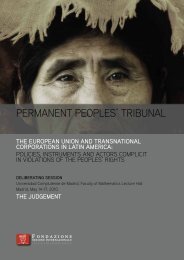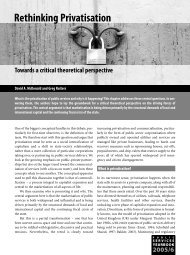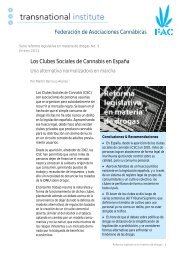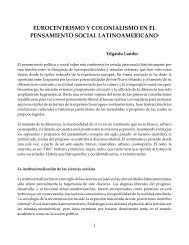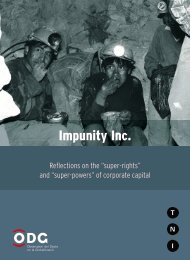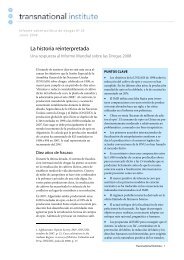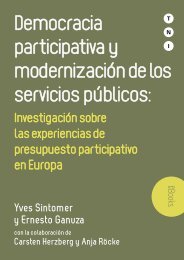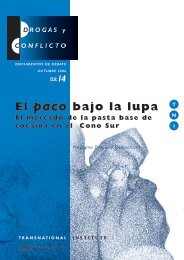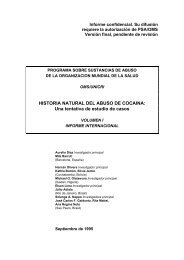Download Annual Report 2012 (pdf, 3.08 MB) - Transnational Institute
Download Annual Report 2012 (pdf, 3.08 MB) - Transnational Institute
Download Annual Report 2012 (pdf, 3.08 MB) - Transnational Institute
Create successful ePaper yourself
Turn your PDF publications into a flip-book with our unique Google optimized e-Paper software.
corporate powerWe are living in an era where thepower of transnational corporationscontinues to increase and become evermore concentrated. A study of 43,000transnational corporations found that just737 corporations control 80% of them (TheNetwork of Global Corporate Control, Vitaliet al 2011). Furthermore, 50 companiesare identified as being at the cusp of theextreme concentration of corporate power,half of which are the global financial, oil, gasand extractive corporations. As the globaleconomic, social and ecological crisesdeepen, these corporations not only refuseto take responsibility for their own role insparking it but also block possible routes toan exit. TNI seeks to expose the frameworksthat buttress corporate power and provide aresource for civil society activists to developalternatives..Exposing the ‘architecture..of impunity’.<strong>Transnational</strong> corporations have violated human rightsand damage the environment the world over – yet most ofthese economic and environmental crimes are not illegal.International trade and investment treaties and yearsof ‘structural adjustment’ programmes have created an‘architecture of impunity’ at the national and internationallevel, and severely restricted the sovereignty of nations tohold them accountable or restrict their power.TNI seeks to expose such corporate abuses, while pointingout the structural reasons why they remain able tooperate with impunity. Corporations have captured ourlegal systems and moulded them in their own interests,with the complicity of governments and internationalinstitutions. Governments that have been subsequentlyelected to challenge transnational corporate power havefound themselves in a legal straitjacket. Where they havedared to act in the public interest, they have been closelymonitored by arbitration lawyers keen to earn big feesfrom transnational corporations by bringing investmentdisputes to arbitration (see page 23).20 tni <strong>Annual</strong> <strong>Report</strong> <strong>2012</strong> Corporate Power


